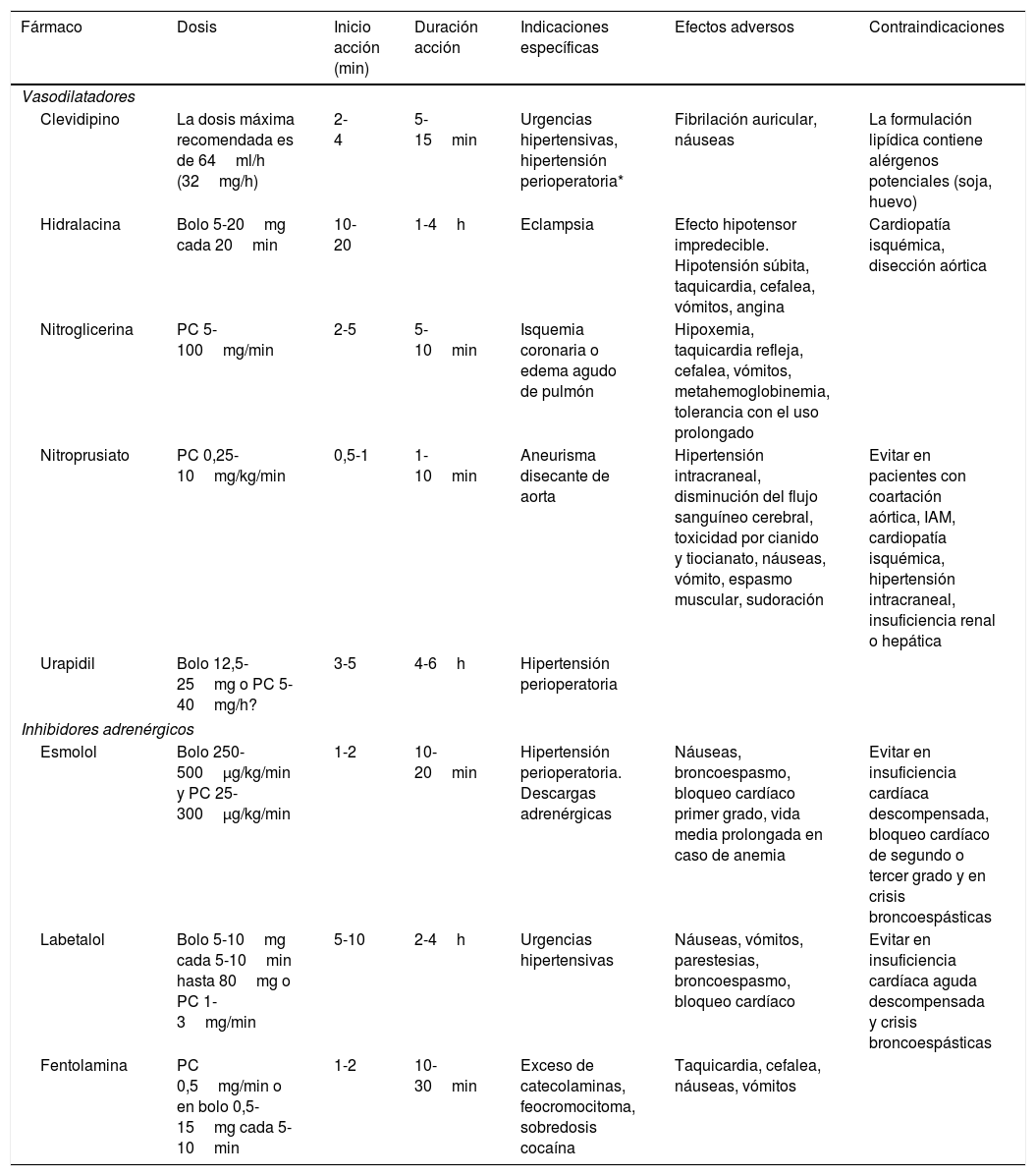La hipertensión arterial (HTA) postoperatoria se define como una elevación significativa en la presión arterial (PA) durante el postoperatorio inmediato que puede conducir a complicaciones neurológicas, cardiovasculares o quirúrgicas graves requiriendo un manejo urgente. En cirugía no cardíaca, la HTA postoperatoria es frecuente y conlleva un aumento de eventos adversos, incluyendo accidente cerebrovascular, lesión e infarto de miocardio, y hemorragia. En ciertos procedimientos, como la endarterectomía carotídea, la cirugía de aneurisma aórtico o la cirugía intracraneal, la HTA postoperatoria presenta consideraciones específicas que no están presentes en otras cirugías y puede asociarse a peores resultados neurológicos. Entre los factores de riesgo para su aparición destaca el antecedente de HTA previo a la cirugía, aunque no todos los episodios de hipertensión postoperatoria corresponden a pacientes hipertensos crónicos. En las primeras horas tras la cirugía, el dolor, la agitación, la hipoxemia o distensión vesical, entre otros factores, pueden contribuir a la aparición de HTA. Aunque no existe un claro consenso sobre los umbrales y objetivos del tratamiento antihipertensivo, este suele iniciarse cuando la PA sistólica es >180mmHg o la PA diastólica es >110mmHg, especialmente si persiste después de tratar las posibles causas subyacentes. El uso de la medicación por vía oral en el postoperatorio puede estar limitado por las circunstancias de la cirugía, pero también por el lento inicio de acción de los fármacos y la dificultad de controlar el grado de descenso de la presión. Si la administración oral de medicamentos no es factible, se recomienda usar fármacos intravenosos de acción corta. La elección del fármaco antihipertensivo dependerá de la situación clínica y las condiciones del paciente, y deberá tener en cuenta los parámetros farmacocinéticos y farmacodinámicos de los distintos agentes disponibles.
Postoperative hypertension (HT) is defined as a significant rise in blood pressure (BP) during the immediate postoperative period that can lead to serious neurological, cardiovascular or surgical complications requiring urgent management. In non-cardiac surgery, HT is common and leads to an increase in adverse events, including stroke, injury and myocardial infarction, and bleeding. In certain procedures, such as carotid endarterectomy, aortic aneurysm surgery or intracranial surgery, postoperative HT has specific considerations not present in other surgeries and may be associated with worse neurological outcomes. Among the risk factors for its occurrence is the history of hypertension prior to surgery, although not all episodes of postoperative hypertension correspond to chronic hypertensive patients. In the first hours after surgery, pain, agitation, hypoxemia or bladder distension, among other factors, may contribute to the appearance of hypertension. Although there is no clear consensus on the thresholds and goals of antihypertensive therapy, it is usually initiated when the systolic BP is >180mmHg or the diastolic BP is >110mmHg, especially if it persists after treating possible underlying causes. The use of oral medication in the postoperative period may be limited by the circumstances of the surgery, but also by the slow onset of action of the drugs and the difficulty of controlling the degree of pressure drop. If oral administration of medication is not feasible, we recommend the use of short-acting intravenous drugs. The choice of antihypertensive drug will depend on the clinical situation and conditions of the patient, and should take into account the pharmacokinetic and pharmacodynamic parameters of the different agents available.









